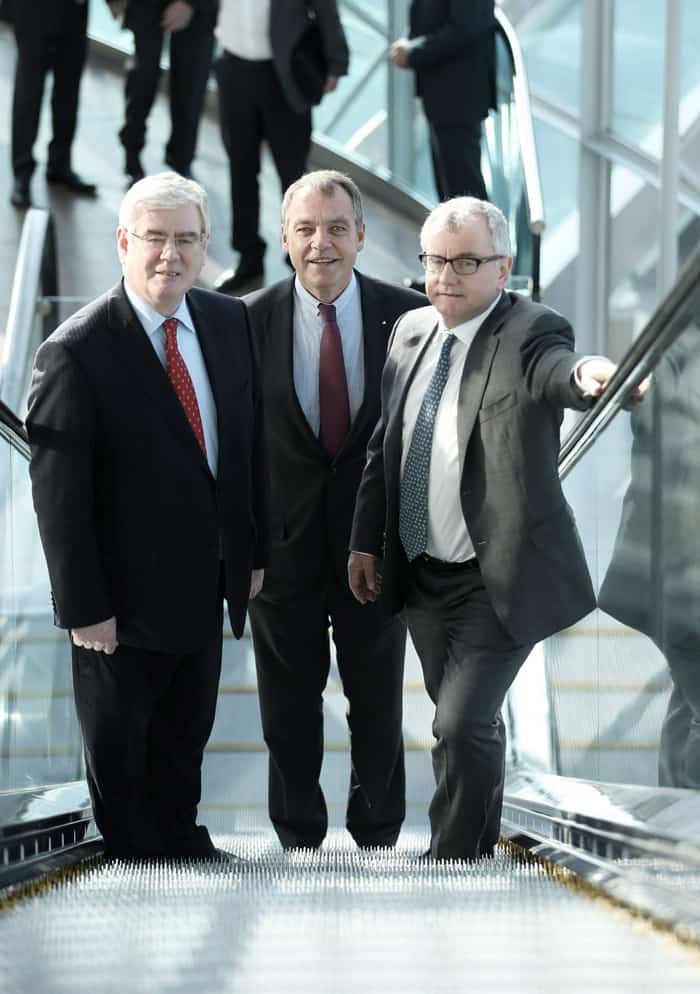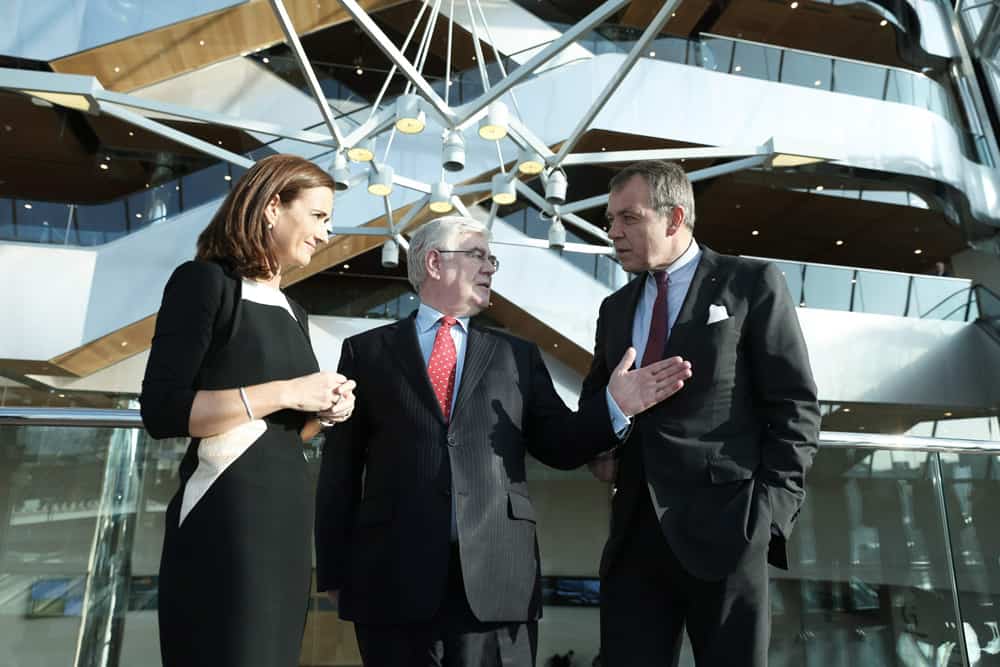While the global economy is improving and asset prices are increasing, ongoing volatility and macro-economic challenges, in addition to heightened leverage and record low deposit rates across the developed world, are posing challenges for Irish investors and companies, an investment conference in Dublin was told this morning. Irish investors are being advised to both recognise the risks but also to actively seek value-adding opportunities.
Investec Bank Ireland’s fourth annual investment conference, entitled, ‘Perspective: a time to look back, the time to move forward’, was opened by Tánaiste and Minister for Foreign Affairs and Trade, Eamon Gilmore and was attended by more than 450 guests from leading Irish and the international investment and financial banking community.
Speaking at the conference, the Tánaiste said: “The theme of this year’s conference is apt: A time to look back, the time to move forward. We can look back at the hard decisions and the long and difficult road taken, from the restructuring of the Irish banking system, to implementing measures to stimulate domestic demand and getting our public finances back on a sustainable track and our successful exit from the EU-IMF programme. Now is also a time to look forward as we continue the work of rebuilding our reputation and attracting investment so we can secure Ireland’s economic stability, build a broad recovery and create more and better jobs for our people.”
Michael Cullen, CEO, Investec Ireland, said: “There was a sea change in terms of appetite for Ireland Inc. during 2013, and many saw it as a turning point. We saw activity returning strongly and a continued improvement in sentiment. We see these trends broadly continuing in 2014, as sentiment continues to improve and debt issues gradually get addressed. We expect Irish investors to experience market volatility in 2014 despite an improving global economy and increasing asset prices.”
Ben Rogoff, lead fund manager, Polar Capital, spoke about new trends in technology that are evolving in front of our eyes. “Every two days we generate five quintillion bytes of data – about the same amount it took from the dawn of civilization until 2003 to create. Growth has been so dramatic that 90% of the data in the world today is said to have been created in the last two years alone. The prospect of extracting value from new, untapped sources has led data to being described as ‘the next natural resource’ while others have gone further in declaring it to be a new class of economic asset, ‘like currency or gold’. The new technology cycle has entered a more pernicious phase which should continue to drive a bifurcation of intra-sector fortunes. In time, the value extracted from ‘big data’ will allow the technology sector to reinvent other industries. As adoption of cloud computing gathers pace, new cycle deflation will fuel a plethora of exciting new applications while undermining incumbent business models.”
Alastair Mundy, head of Value Investing, Investec Asset Management, said, “Among the mistaken assumptions currently circulating markets are the notions that the financial crisis is over and that US equities are attractive. We’ve basically been playing pass the parcel with the debt. The greatest liabilities have shifted from banks to governments without truly being resolved.”
Gervais Williams, one of the most influential investors in Irish shares during the 2000’s and a highly regarded fund manager with the Miton Group, said, “The credit boom rewarded three investment strategies: 1) encouraging elevated levels of volatility, 2) greater focus on index stocks to deliver premium returns and 3) less interest in dividends given that capital gains can be so much larger. The credit trends have now changed, and the market trends can be expected to change too. Yet at a time of economic challenge, smaller companies outperformed considerably. Micro cap stocks tended to outperform by an even wider margin. The key advantage of smallness is the potential to deliver growth in spite of weak economic trends. With world economic growth slowing beyond the credit boom, there are now good reasons to hold a full weighting of small/micro caps again.”

Tanaiste and Minister for Foreign Affairs and Trade, Eamon Gilmore; Christoph Mueller, CEO Aer Lingus; Michael Cullen, CEO Investec Bank Ireland
Joe Thompson, director, Corporate Broking, Investec UK, said, “In 2013, there was an IPO rush, as ‘float fever’ came to a head. In Q4 of 2013, there were approximately 40 sponsor-led IPOs where US$10bn was raised. There were a number of drivers in the return of the IPO market, including recovering global growth reflected in rising equity markets, monetary stimulus depressing bond yields, rotation out of bonds into equities, particularly income funds, private equity back-log and an increasing risk appetite starting to drive volumes. For 2014, if investors are looking at IPO’s, they need to take into consideration the company’s growth potential, strong competitive positioning, a proven business model and earnings visibility, a credible management team, free float (where shares of a public company are freely available to the investing public) and last but not least, value.”




